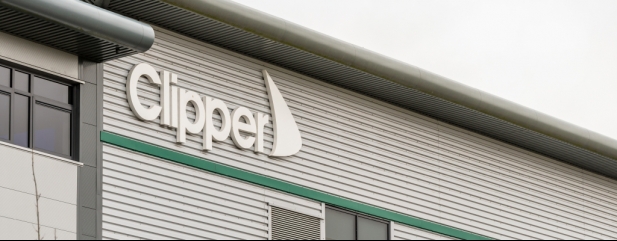Archived article
Please note that tax, investment, pension and ISA rules can change and the information and any views contained in this article may now be inaccurate.
Why takeover activity has fired up the UK logistics industry

The news last month that distribution firm Clipper Logistics (CLG) had agreed a £965 million takeover offer from US-based rival GXO Logistics has propelled the normally staid world of third-party logistics into the limelight.
Crucially, the deal is predicated on revenue synergies, derived from moves like cross-selling and having complementary geographic locations, rather than cost cutting. This reflects the ever-increasing demand for e-commerce services and last-mile solutions.
With more deals happening elsewhere in the sector as global players look to expand we take a look at the options for UK investors.
DAVID AND GOLIATH
GXO Logistics, which is headquartered in Greenwich, Connecticut, employs 120,000 people globally across more than 900 distribution centres totalling roughly 200 million square feet.
Its customers include global blue-chip companies such as tech giant Apple, consumer goods maker Nestle and sporting goods brand Nike.
Last year, GXO turned over $7.9 billion in revenue, a 28% increase on 2020, largely driven by organic revenue growth.
The firm’s contract wins and sales pipeline were the highest in its history closing out 2021, with customers increasingly demanding innovation and global scale according to chief executive Malcolm Wilson.
He sees ‘significant growth opportunities heading into 2022 as the tailwinds of e-commerce, automation and outsourcing continue unabated’.
Clipper, based in Leeds, is a minnow by comparison, with sales in the six months to last October of £406 million and 52 sites under management totalling just 14.3 million square feet.
However, the firm’s turnover grew slightly faster than GXO at 33% in the first half thanks to strong e-fulfilment demand from customers like cycling and car accessories retailer Halfords (HFD), global beauty brand L’Oreal and supermarket chain Morrisons.
Another attractive feature of Clipper is its significant ‘reverse logistics’ or returns business, which it operates for customers including online fashion platform ASOS (ASC), clothing retailer H&M and department store-to-food seller Marks & Spencer (MKS).
It also operates in the fast-growing life-sciences logistics business, an area where GXO is looking to expand.
The chance to combine the two firms was a ‘one-of-a-kind growth opportunity’ according to Wilson, who described Clipper as ‘an exceptional business’ and called the revenue synergies from the deal ‘compelling’.
WHY NOW?
One of the few positive outcomes of the pandemic as far as businesses are concerned has been the dramatic and seemingly permanent uplift in e-commerce as more of us shop online more frequently.
According to the UK’s Office for National Statistics, in December last year nearly 27% of all retail sales by value were conducted online. This excludes fuel sales, which have to be made in person, but includes food sales.
In February 2020, just 19% of UK retail sales were online, while at their peak in January 2021 online sales actually accounted for 37% of all retail sales or almost double pre-pandemic levels.
While they have drifted back, they still averaged 29% of sales last year or 50% more than pre-pandemic, and every retailer and logistics firm, as well as warehouse firms storing the goods, believes this trend is only going one way – up.
With more businesses opting to sell direct to customers as well as, or sometimes instead of, via traditional retail channels, the demands on the logistics sector have never been greater.
Taking on new e-fulfilment clients means greater investment in people, equipment, space and systems. Space is already extremely tight, with most industry experts estimating there is less than 5% of free warehouse space available to rent in the UK.
As a result, rents have sky-rocketed. Add to that increased spending on automation and a need for up-to-the-minute computer systems to make sure deliveries run perfectly to schedule, and the need for more financial resources is clear.
Neil Shelton, GXO’s chief strategy officer, describes the level of investment in automation technology in the logistics sector as being set for a rapid increase.
As well as automating new facilities, his firm is retro-fitting the latest technology to existing facilities to increase efficiency and service levels.
This probably explains why the board of Clipper recommended GXO’s takeover offer. Integrating it into a bigger group with greater cash-flow generation now gives it the financial heft it needs to continue growing and taking on new customers.
GLOBAL TREND
Cross-border acquisitions aren’t just happening in the UK, and a growing number of deals are cross-sector as well.
Last month, Danish group AP Moeller-Maersk, one of the world’s biggest shipping companies, paid around $1.7 billion for US landside logistics firm Pilot Freight Services. Pilot is a last-mile and full-mile solutions provider with 87 locations in North America, and specialises in business-to-consumer home delivery for big, bulky goods, including home installations.
Pilot is a last-mile and full-mile solutions provider with 87 locations in North America, and specialises in business-to-consumer home delivery for big, bulky goods, including home installations.
Primarily the operator of a fleet of ocean-going container ships, Maersk has been building itself up as a ‘logistics integrator’ to broaden its customer relationships.
In the fourth quarter of last year alone its logistics and service business turned over almost $1 billion, a 46% increase on the previous year and more than double Clipper’s first half turnover.
As well as acquiring Pilot, Maersk recently announced it would buy LF Logistics, ‘a significant contract logistics player with a vast footprint across Asia-Pacific’, and Grindrod Intermodal which offers logistic services in South Africa.
It’s worth highlighting that UK firms can be consolidators, not just targets. Specialty baked products maker Finsbury Food (FIF:AIM) agreed last month to take its stake in its jointly-owned European distribution business from 50% to 85% and to acquire the remaining 15% in due course.
The business will continue to operate as it did, under the same management team, but bringing it into the group gives Finsbury greater control over distribution in its European end markets.
BUILDING RESILIENCE
Besides e-commerce, another major factor driving the growth of the logistics industry is companies wanting to shorten their supply chains and building up stockpiles in the UK rather than relying on imports from abroad.
After the well-documented supply chain disruption brought about first by Brexit, then by the pandemic, companies are looking to build in greater resilience by bringing inventories closer to home.
That could mean stockpiling foreign-made widgets, or it could mean giving the contract to a UK company to manufacture instead. The ultimate aim is to ensure the product is available when and where the customer needs it.
What the pandemic and the ensuing shortages have shown is that when a product is critical to a customer – be it bricks to a housebuilder, rubber seals to a pump maker or a special ingredient to a food producer – price takes a back seat to availability in terms of priorities.
In other words, firms that can supply their customers with the products they need on time and to specification can charge more at no extra cost.
As more UK companies decide to ‘re-shore’ supplies or the manufacturing of key items back to the UK, the need for more advanced, ‘just-in-time’ distribution within the UK will increase.
Soumen Das, chief finance officer of industrial property giant Segro (SGRO), believes re-shoring is ‘probably the least talked-about but possibly most interesting long-term trend of this decade’ from an economic viewpoint.
UK LOGISTICS COMPANIES
Give there is likely to be more consolidation in the logistics sector, it’s worth knowing who are the runners and riders.
The main pure-play UK third-party logistics firms in order of market value are Wincanton (WIN), DX Group (DX.:AIM) and Xpediator (XPD:AIM).
There are also half a dozen property firms which specialise in large and medium-sized industrial warehouses whose customers include big retail firms as well as logistics providers. Not surprisingly, Wincanton, whose customers include Asda, Dobbies, Lakeland, Primark, The Range and Waitrose, had a bumper last quarter.
Not surprisingly, Wincanton, whose customers include Asda, Dobbies, Lakeland, Primark, The Range and Waitrose, had a bumper last quarter.
Digital and e-fulfilment revenues for the three months to December jumped 51%, helped by the acquisition of Cygnia, and the firm raised its full year profit outlook after securing ‘a number of significant contract wins and extensions’.
DX Group is a last-mile delivery firm with customers ranging from sole traders all the way to nationwide retailers such as B&Q.
It specialises in handling irregular dimensions and weights and is primarily used for business-to-business deliveries.
DX shares are currently suspended pending the publication of the company’s full year results, but when they last traded in December at 30p the firm had a market value of £172 million.
Xpediator is a road freight firm with extensive operations in central and eastern Europe as well as the UK and a market value of £66 million.
Last year the business turned over more than £300 million thanks to a ‘strong increase’ in freight forwarding revenues.
This year it hopes to build on its partnership with e-commerce specialist Synergy Retail Support by bringing more customers on board and ramping up activity at its warehouses.
For investors wanting to take a more broad-brush approach to the sector there is the L&G E-commerce Logistics ETF (ECOG), which invests globally to replicate the Solactive E-commerce Logistics Index.
The tracker fund has no UK exposure but holds a collection of stocks including AP Moller-Maersk, FedEx, Japan Post, UPS and Walmart and has some $420 million in assets.
Some of the biggest winners from the surge in logistics demand have been the providers of warehouse space. Aberdeen Standard Logistics Income (ASLI), Tritax Big Box (BBOX), Segro (SGRO) and Urban Logistics (SHED) are prime examples.
As Colin Godfrey, chief executive of Tritax, put it to Shares, the UK is now ‘a landlord’s market’ with rising rents and capital values almost assured for the next few years given the enormous overhang of customer demand for prime logistics space.
Important information:
These articles are provided by Shares magazine which is published by AJ Bell Media, a part of AJ Bell. Shares is not written by AJ Bell.
Shares is provided for your general information and use and is not a personal recommendation to invest. It is not intended to be relied upon by you in making or not making any investment decisions. The investments referred to in these articles will not be suitable for all investors. If in doubt please seek appropriate independent financial advice.
Investors acting on the information in these articles do so at their own risk and AJ Bell Media and its staff do not accept liability for losses suffered by investors as a result of their investment decisions.
Issue contents
Editor's View
Feature
Great Ideas
- Tharisa shares hit new record high as metal prices rally
- Why Hill & Smith’s share price has fallen too far
- Fancy 9% dividend yield? M&G is the answer
- Hargreaves Services delights investors by raising its full year outlook again
- Buy this Canadian fund for income and exposure to attractive sectors
- Don’t panic about drop in Heptagon European fund
News
- Quality growth strategy delivered strong returns in 2021 for Smithson
- Sanctions create potential earnings boost for non-Russian potash producers
- Mike Ashley increases Frasers’ stake in German fashion retailer Hugo Boss
- Why global shares could receive a major boost from large pension fund rebalancing
- Investors in China should brace for even greater volatility as risks multiply

 magazine
magazine








